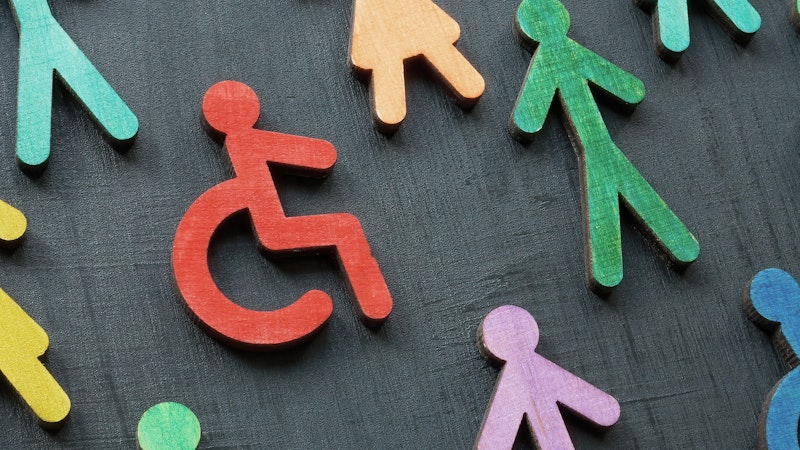
Are you looking for carers who have experience with learning disabilities?
How are people affected by a learning disability?
There are many people who have a learning disability that have relationships, live alone, work and gain qualifications. It is different for everyone.
Other people who have a learning disability might need support and assistance throughout their lives.
What causes a learning difficulty?
It is not always straightforward to assess why a person has a learning disability. Sometimes a person's brain development is affected; this can be during birth, before birth or in early childhood. These developmental changes can be caused by:
Injury or illness in early childhood
Problems during birth that prevent enough oxygen from getting to the brain
Illness during pregnancy
Genetic issues
Associated conditions
Some health conditions mean that you could be more likely to have a learning disability. Many people with cerebral palsy and down's syndrome have some level of learning disability. Also, many people with epilepsy and autism can have a learning disability.
Many people with a learning disability have multiple diagnoses and a set of conditions unique to them - no two experiences of learning disability are the same.
Here are some conditions associated with learning disabilities:
SYNGAP1 - A rare genetic condition that affects girls and boys, causing learning disabilities. It occurs randomly and can cause; language delays, seizures, behavioural and emotional challenges, motor delays and sleep problems.
Autism and Asperger's syndrome - Sometimes referred to as autism spectrum disorder (ASD). Autism is not a learning disability, but around half of people with autism may also have a learning disability. It is a lifelong condition, like a learning disability.
Cerebral palsy is a physical condition usually diagnosed at birth or in early childhood. It affects posture, movement, and coordination.
Challenging behaviour - This is a broad term, and it covers behaviour that is challenging to teachers, carers, parents and other professionals. Challenging behaviour is behaviour that is considered to be harmful to the person and others around the person or if it stops them from making friends or concentrating at school. This behaviour can include; hitting, tantrums, throwing things, kicking or self-harming.
Down's syndrome is when someone has an extra chromosome in their cells. For the most part, it occurs at the time of conception, by chance - it isn't genetic.
Fragile X syndrome - A genetic condition affecting both boys and girls. However, it often affects boys more severely. Fragile X syndrome can cause various issues with emotions, language, behaviour, attention, and social interaction.
Williams syndrome - A rare genetic condition that occurs randomly, it is not an inherited condition, and it affects 1 in 18,000 people in the UK.
Profound and multiple learning disability (PMLD)
A profound and multiple learning disability (PLMD) is when a person has severe learning difficulty as well as other disabilities that affect their independence and communication.
Someone with PLMD may have difficulties hearing, speaking, moving and seeing. Due to these conditions, their health and social needs might be complicated.
If someone is experiencing profound and multiple learning disabilities they will need support with day-to-day activities such as; personal care, washing and eating. They may need around the clock care. Many people experiencing these disabilities enjoy some independence and make much of their own decisions.
Those who struggle with talking may use other means of communication such as sign language, Makaton, signalong or picture exchange communication systems (PECS).
Caring for someone with a learning disability
Local councils provide social care to support people with learning disabilities to live independent, safe and fulfilling lives. If you are the person responsible for a family member with a learning disability, help is available to support you. Support can vary from a small amount of care (a few hours a week) to 24/7 care.
Your local authority will assist you by carrying out a 'needs assessment' to decide the next steps.
Social services may offer help with funding:
Daycare services for learning disabilities: Daytime activities to aid learning and social interaction
Care at home: This can include everything from short enabling visits to more extended visits helping with personal care and day-to-day tasks.
Respite care for adults with learning disabilities to give you or the carer a break
Care homes or live-in care at home for those who need around the clock care
FAQs
What is the difference between learning disability and learning difficulty?
Learning difficulties are often confused with learning disabilities. Learning difficulty differs from a learning disability because it doesn't affect general intellect. Examples of learning difficulties are; Dyscalculia, Dyspraxia, ADHD (attention deficit-hyperactivity disorder) and dyslexia.
Learning disabilities can exist on a scale; they might be severe or mild, people can also experience more than one difficulty.
Is a learning disability a mental illness?
Firstly, we use the term 'mental health problem'. 'Mental health problem' is a term that covers psychological, emotional and psychiatric distress that people experience. Approximately 25% of the population each year experience a mental health problem. They can affect anyone at any time.
A learning disability makes everyday activities difficult because of reduced intellectual ability and affects someone for their whole life. People with learning disabilities can, however, experience mental health problems.
Can you develop learning disabilities later in life?
Yes you can .
Is autism a learning disability?
No, autism is not a learning disability. But approximately 50% of people with autism also have a learning disability.
Is ADHD a learning disability?
No, but it does make learning difficult. You can experience ADHD and a learning disability at the same time.